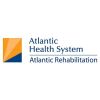- 1-Understanding-Cholesterol
- 2-Myth-1-Good-vs-Bad-Cholesterol
- 3-Myth-2-Dietary-Cholesterol-Impact
- 4-Myth-3-Cholesterol-Only-Affects-Obese
- 5-Real-Life-Lesson
- 6-Practical-Advice-for-Heart-Health
1. Understanding Cholesterol and Its Role in Heart Disease
Cholesterol often gets a bad reputation, especially in discussions about heart disease, but the reality is more nuanced. Cholesterol is a fatty substance essential for building cells and producing certain hormones. However, when cholesterol levels become imbalanced, particularly with elevated low-density lipoprotein (LDL), it can contribute to arterial plaque buildup that increases heart disease risk.
Recognizing the role cholesterol plays in cardiovascular health helps separate fact from fiction, allowing for better management and prevention strategies.

2. Myth 1: All Cholesterol Is Bad for Your Heart
A common misconception is that cholesterol itself is harmful. In truth, cholesterol comes in different types with distinct functions. High-density lipoprotein (HDL) is often called “good cholesterol” because it helps remove LDL cholesterol from the bloodstream, reducing plaque buildup.
Focusing solely on lowering cholesterol without understanding the balance between LDL and HDL can be misleading. Maintaining a healthy ratio is crucial, and medical professionals often emphasize this in managing heart disease risks.
Atlanta Heart Specialists
atlanta heart specialists
4375 Johns Creek Pkwy #350, Suwanee, GA 30024, USA

3. Myth 2: Eating Cholesterol-Rich Foods Directly Raises Blood Cholesterol
Many people believe consuming foods high in cholesterol, such as eggs or shellfish, will automatically increase blood cholesterol levels. However, research shows that dietary cholesterol has a smaller effect on blood cholesterol than once thought. The liver produces most cholesterol, adjusting levels based on dietary intake.
That said, diets high in saturated fats and trans fats have a more significant impact on raising LDL cholesterol than dietary cholesterol alone. This distinction is essential when making informed nutrition choices for heart health.
4. Myth 3: Only Overweight or Obese People Have Problematic Cholesterol Levels
Cholesterol problems can affect anyone, regardless of body weight. Genetics, lifestyle, and other health conditions play pivotal roles. Some individuals with normal weight may have high LDL or low HDL cholesterol due to hereditary factors or chronic inflammation.
This myth can prevent people from seeking necessary screenings or lifestyle changes. Regular health checkups and personalized advice are key to identifying and addressing cholesterol-related heart disease risks.
5. Real-Life Lesson: Maria’s Wake-Up Call About Cholesterol
Maria, a 38-year-old fitness enthusiast, was shocked when a routine blood test revealed elevated LDL cholesterol despite her active lifestyle. Her case highlights that even those who appear healthy can face hidden risks. After consulting specialists and adjusting her diet to reduce saturated fats while maintaining balanced nutrition, Maria managed to improve her cholesterol profile significantly.
Her story emphasizes the importance of understanding cholesterol myths and staying vigilant with heart health regardless of external appearances.
6. Practical Advice for Managing Heart Disease and Cholesterol Wisely
6.1 Adopt a Balanced Diet
Focus on whole grains, fruits, vegetables, and healthy fats like those from nuts and olive oil. Limit intake of processed foods and excessive saturated fats.
6.2 Maintain Regular Physical Activity
Exercise boosts HDL cholesterol and supports overall cardiovascular health.
6.3 Regular Screening and Professional Guidance
Routine cholesterol checks are crucial, especially for those with family history or other risk factors. Consultation with healthcare providers can tailor prevention and treatment plans.
For those seeking reliable products and personalized recommendations for heart health management, HeartCare Hub provides a trusted platform to explore supplements, monitoring devices, and expert services designed to support your journey toward cardiovascular wellness.





















Deborah Heart and Lung Center
deborah heart and lung center
200 Trenton Rd, Browns Mills, NJ 08015, USA